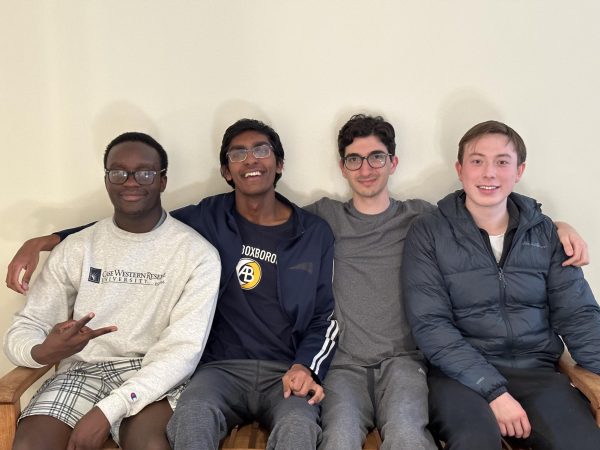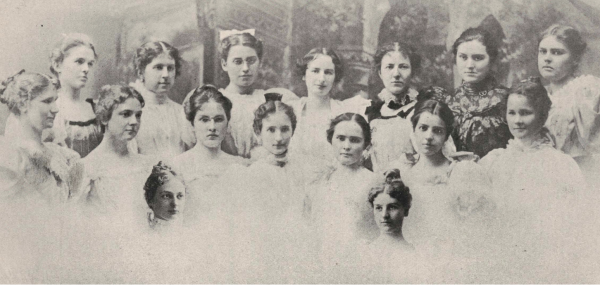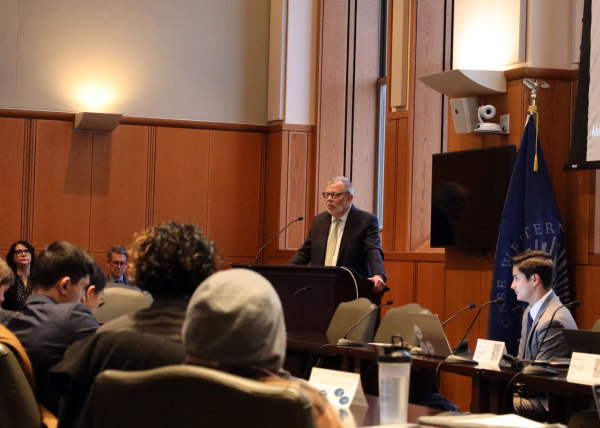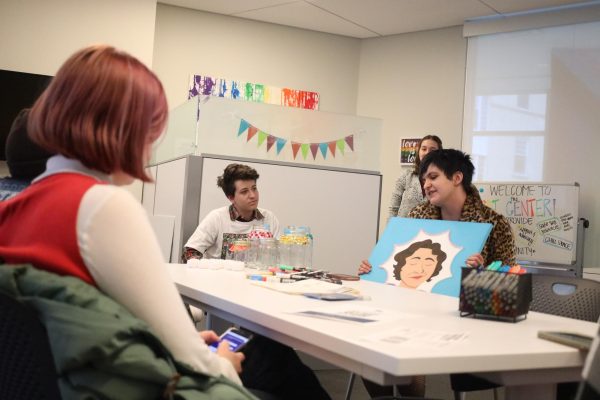Students build an app to supplement therapy
Over the summer, fourth-year students Katherine Chen and Justine Anne De Angelis had to step outside of their comfort zones. They had to learn how to build an application.
Advised by Amy Przeworski, assistant professor in the department of psychology, and Marc Buchner, associate professor in the department of electrical engineering and computer science, Chen and De Angelis were able to develop an application focused on promoting mental wellbeing.
Chen and De Angelis are now working to push the research end of their project into action.
They will be testing their application, designed to supplement cognitive behavioral therapy, on a group of 60 Case Western Reserve University students for a two-week period this semester.
“[The application] is more of a supplement to thinking positively everyday,” said Chen. “It’s more mindfulness, to think about your life and how better to view your life [from] a different standpoint.”
Currently Chen and De Angelis are in the process of recruiting students who would fall into either an anxiety or depression subgroup, based on scores from an initial questionnaire.
“Our research question right now is just to see if the app has any effect on the mental wellbeing of students,” said Chen. “A secondary objective is to teach people more about what healthy mental habits are.”
Participants in the study will be taught how to be more mindful and will learn how to reduce anxiety during stressful weeks. They will then submit a final questionnaire to assess to what extent they identify with their original subgroups.
“People don’t realize that therapy’s a lot of work,” said De Angelis. “[Therapy] is a lot of reading, it’s a lot of thinking and reflecting. We wanted to do something that would be easier to fit in between classes, in your schedule.”
Chen and De Angelis hope that the application will be more accessible to the student demographic and will enable students to develop healthier cognitive behaviors.
“Right now, we’re not really branding the app as something that’s towards a treatment to mental illness, but eventually, if this project goes well, we hope to bring it further,” said Chen.
Although their study was originally a part of a senior capstone project for a class they shared during the fall semester of their junior year, Chen and De Angelis were able to secure SOURCE funding over the summer and further develop their research ideas.
After spending the summer developing their protocol and gaining approval from the Institutional Review Board, Chen and De Angelis now plan to complete the implementation component of the project by the end of this semester.
“The research in itself is challenging,” said Chen. “It requires a lot of flexibility. That’s the number one thing I’ve learned through this entire [process].”
With respective backgrounds in biology and psychology, and cognitive science and anthropology, Chen and De Angelis had to tackle the entirely unfamiliar field of application-building in order to integrate technology in their research.
The pair also had to juggle research and application-developing with their schedules.
Chen, who is also pursuing a master’s degree in bioethics through the Integrated Graduate Studies program, plans to attend medical school and is currently in the process of applying.
De Angelis, who plans to attend graduate school to study neurodegenerative diseases, will be graduating at the end of this semester.
Although Chen and De Angelis had several hurdles in their path, they found that working as a team makes the process easier.
“It’s very easy to get frustrated when things don’t go the way you wanted them to go,” said Chen. “There are always going to be setbacks, but there’s always going to be something that will keep you moving forward.”

















